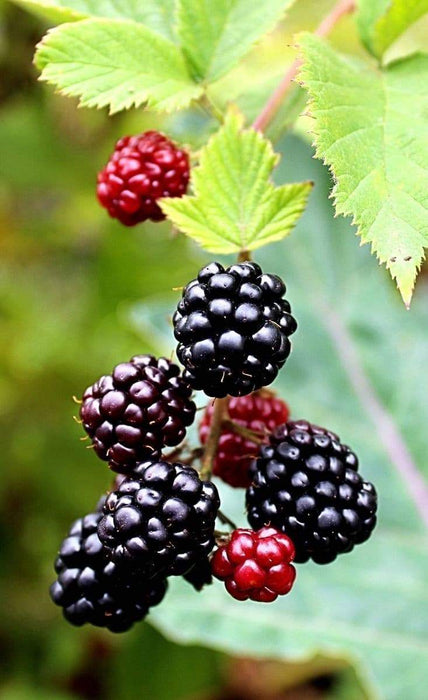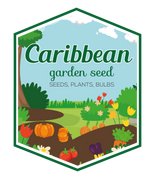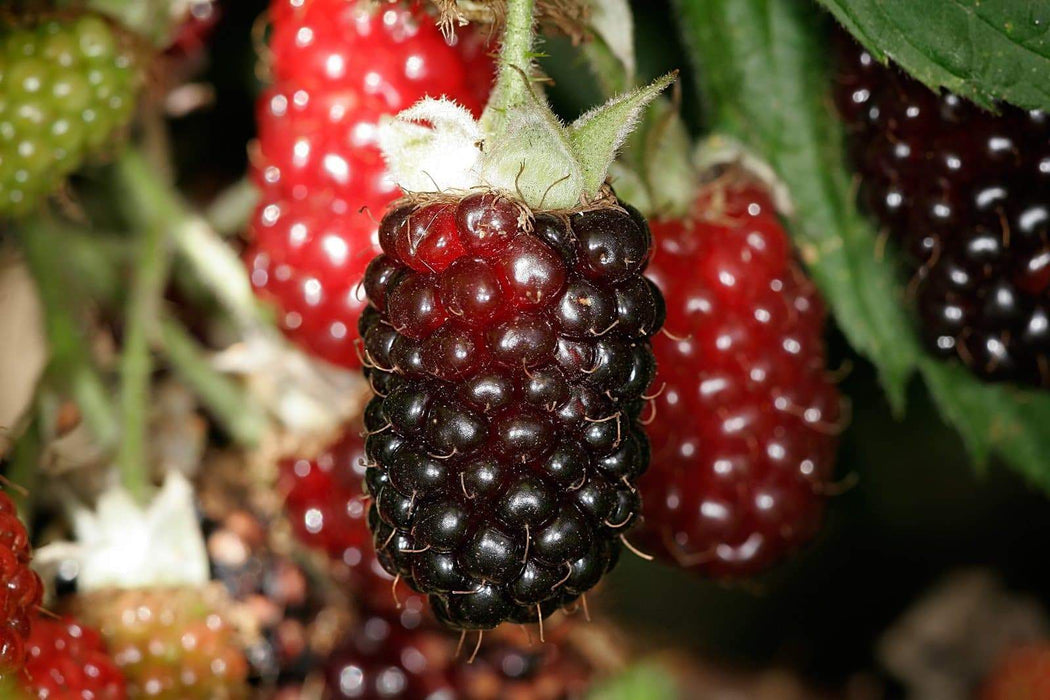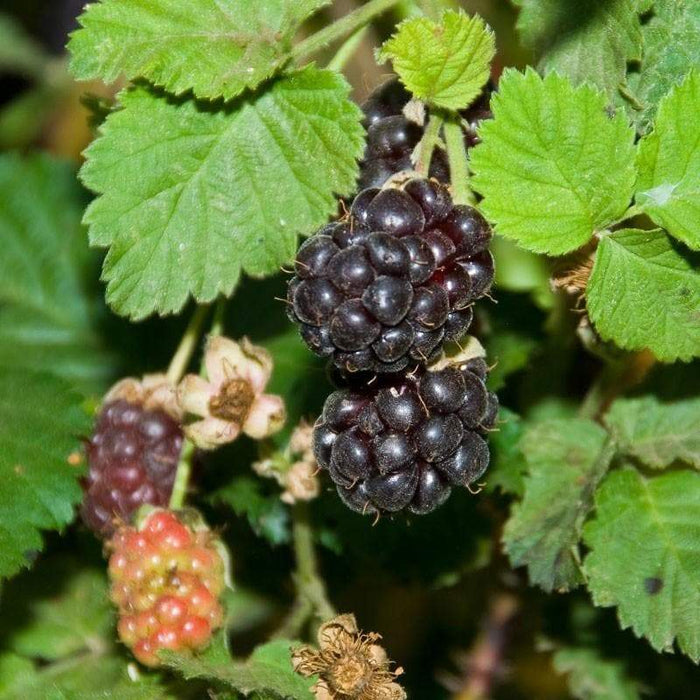
Thornless Boysenberry ‘ Plant
Most orders are processed by the next day
Select your desired size and/or color from the available options.
Grow Your Own Fresh Fruit!
Very sweet and juicy. Boysenberries makes the best pies and jellies! Very few seeds. Has more flavor than standard blackberries. Allow the Boysenberry canes to grow to a height of 18-30″ the first year and then prune a few inches to form a stocky, upright bush which will hold a crop without trellising. Boysenberries are easily grown and very productive. Rich, luscious, wine colored berries. Flavor is a taste of loganberry, raspberry and blackberry. With no thorns, they’re easy to pick, and can be trained to trellis or fence. Require winter protection where temperatures go below 5°.
Care and cultivation should be thorough and frequent, not only the first year but after plants come into bearing, especially when the berries are growing and ripening. Moderate moisture is required and with proper care your plants will produce plentiful harvests for over two months
Planting Instructions: May be planted in any well-drained soil. Dig a hole large enough to encompass the roots without bending or circling. Set the plant in place so the crown (part of the plant where the roots meet the stem) is about 1-2" below the soil surface. Cover with soil to the original soil surface and water thoroughly. Fertilize when planting. Cane berries prefer a deep, well-drained, fertile soil and typically bear fruit on 2-year old wood with everbearers producing on first-year wood. Thrive in most soil types. Versatile and hardy in the coldest climates where other cane fruits fail. Plant late winter to early spring.
Pests or Diseases: Relatively disease-free
LET OUR CUSTOMER SPEAK FOR US

![[Seeds] - Caribbeangardenseed](http://caribbeangardenseed.com/cdn/shop/files/gift-card-gift-card-1_1024x1024_dfa857db-9150-4315-a362-7f0bb3fb9c47_60x28.png?v=1703978838)

